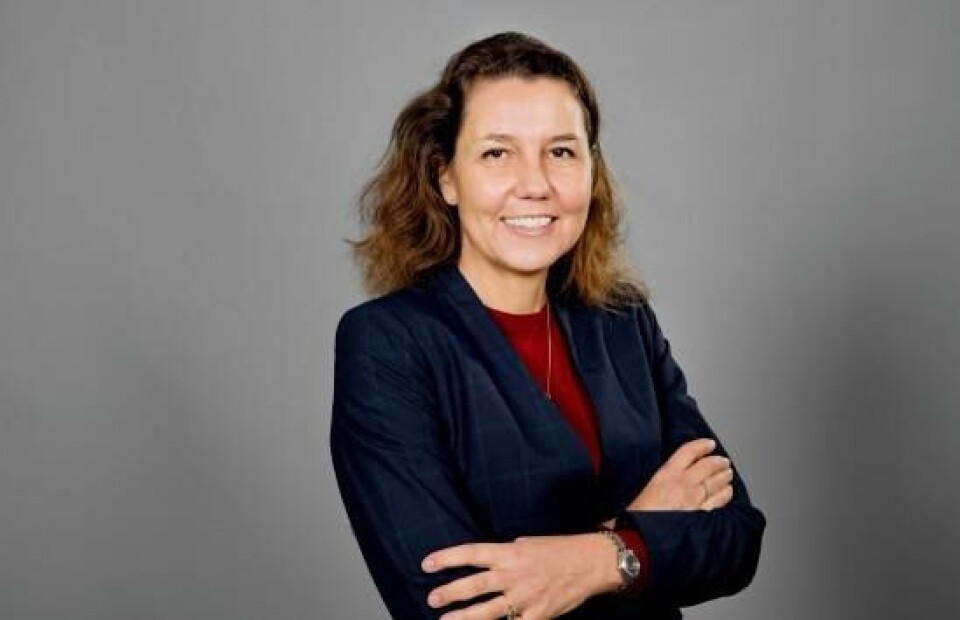
Alternative feed ingredients ‘won't replace fishmeal’
By-products are already used to generate a third of the fishmeal used in salmon feed but that can potentially be increased further, the incoming president of the International Fishmeal and Fish Oil Organisation (IFFO) believes.
Anne-Mette Baek begins her two-year stint on January 1, taking replacing the Chilean Eduardo Goycoolea. In an interview with Fish Farming Expert’s Chilean sister site, Salmonexpert, she said: “IFFO wants to be more proactive and inform about the industry and how it helps feed the world while providing the best proteins and using natural resources in a sustainable way.
“I would like to see IFFO move further in the direction of representing responsible and sustainable production worldwide and introducing minimum requirements on these parameters for members of the organisation.”
Baek, who also heads the international association of the European fishmeal and fish oil producers, EU Fishmeal, does not regard the increasing supply of fish-free alternative feed ingredients such as algal oil as a threat to her industry.
“Fishmeal and fish oil that support aquaculture is a very efficient way to produce protein, essential to feed a world population that will reach 9.6 billion people in 2050,” said Baek, the executive director of Marine Ingredients Denmark.
“Additional sources are welcome to help meet this challenge and complement fishmeal and fish oil, whose world production will remain stable in the coming years as it has in the past. I do not see alternative ingredients as a replacement: fishmeal provides essential nutrition that is not found in other food ingredients. Fish oil also contributes nutritionally with the health of farmed fish and the health of the consumer (omega-3).”
Responsible sourcing
The amount of fish caught to meet the demand for fishmeal and fish oil has led to the products being labelled unsustainable, something Baek believes can be solved by increasing certification and by-product use.
“Certification exists in the industry, and this is an independent way to review production practices and responsible sourcing of raw materials,” said the executive.
“The development of the IFFO Global Standard for Responsible Supply (IFFO RS) has led the marine ingredients industry to become one of the independently certified food ingredient industries, with the highest rates (52%). Most of the fisheries that provide raw material for fishmeal and fish oil are well managed (88% of them according to the environmental NGO Association for Sustainable Fisheries).
Effective improvement
“We are aware of some places where there are challenges and we are eager to see the use of Fisheries Improvement Projects (FIPs) as a way of managing effective improvement over time.
“We would also like to see a greater use of derivatives: worldwide, a third of the fishmeal is currently produced from by-products that remain after food fish have been processed, but at IFFO we see potential for this proportion to increase.”
IFFO intends to continually increase the number of certified ingredients used.
Structured path
“Our goal is for producers to produce sustainably,” said Baek. “Direct human consumption of fish should be the priority, but not all fish species can be used for direct human consumption.
“Since the first fishmeal plant was certified in 2010, the IFFO RS standard has grown tremendously. To help provide clear and useful guidance to those who currently do not meet the IFFO RS certification requirements, IFFO RS developed the IFFO RS Improvement Program (PM).
“This program provides a transparent and structured improvement path with annual milestones aligned with the IFFO RS program and can take up to five years to reach the application point of the IFFO RS standard for certification.
“The objective of IFFO RS by 2025 is to increase the level of certified marine ingredients, under evaluation or in the Improvement Program, to 75% of the total world volume.”























































